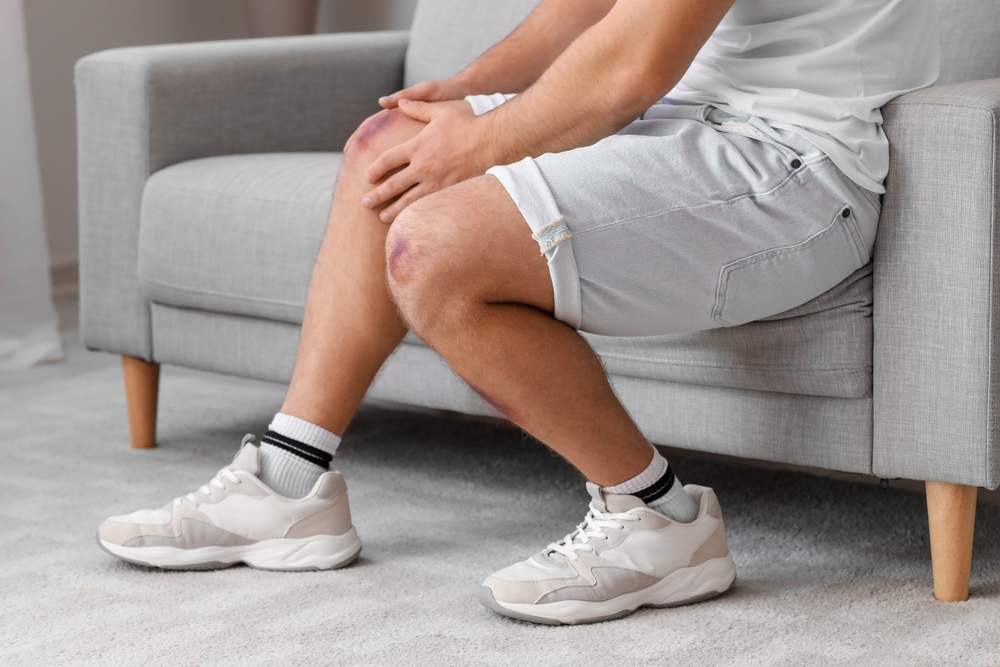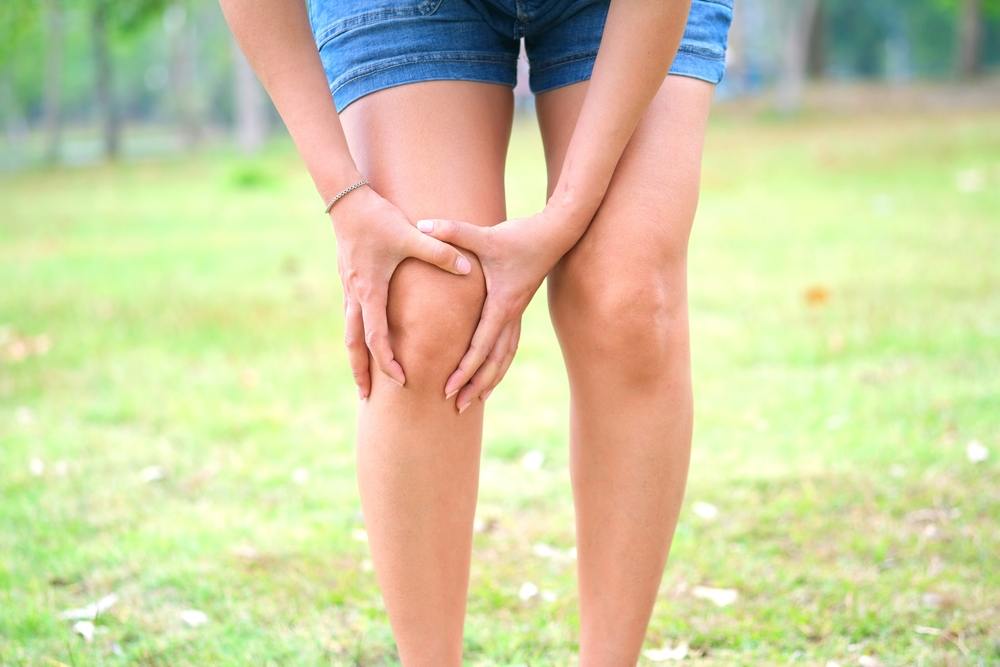 Getting into a car accident can be such a stressful experience. When you add symptoms of a car accident injury to the mix, it is completely understandable that you might get overwhelmed. The most important thing you can do for yourself after a car accident is to get prompt medical treatment, no matter how mild the symptoms may seem at first. The shock and stress of a car accident can temporarily mask pain and other symptoms, but a car accident doctor can catch the signs and symptoms of a potential car accident injury and get you started on the right treatment plan so you can recover. Some car accident injury symptoms may be more alarming than others. If you experience walking problems or balance problems after a car accident, visit your Lithia Springs car accident doctor as soon as possible.
Getting into a car accident can be such a stressful experience. When you add symptoms of a car accident injury to the mix, it is completely understandable that you might get overwhelmed. The most important thing you can do for yourself after a car accident is to get prompt medical treatment, no matter how mild the symptoms may seem at first. The shock and stress of a car accident can temporarily mask pain and other symptoms, but a car accident doctor can catch the signs and symptoms of a potential car accident injury and get you started on the right treatment plan so you can recover. Some car accident injury symptoms may be more alarming than others. If you experience walking problems or balance problems after a car accident, visit your Lithia Springs car accident doctor as soon as possible.
How a Car Accident Injury Can Affect You
When you experience a shocking or traumatic event like a car accident, your body responds by flooding your system with adrenaline to trigger your fight or flight response. Adrenaline helps you to stay alert during a crisis, but once you get a chance to relax after the accident, your symptoms could come crashing in. here are some of the ways a car accident injury can affect you.
Pain & Discomfort
Pain is one of the most obvious signs of injury after a car accident. What might start out as some mild discomfort could develop into serious pain hours or days after the accident. Pain can occur at the location of the injury, but it can also occur elsewhere in the body, depending on the type of car accident injury you have suffered.
Nerve Damage
Car accident injuries can also lead to irritated nerves or even nerve damage. When a nerve becomes aggravated or compressed, it can cause uncomfortable symptoms like tingling and numbness. This “pins and needles” sensation can extend into other parts of the body that the damaged nerves support, like your arms or legs. Nerve damage from a car accident injury can also cause weakness in your extremities.
Strains & Sprains
Injuries to muscles, tendons, ligaments, and other soft tissues are also common in car accidents. Back strains or ankle sprains can occur because of a car wreck and impact your mobility. Strains and sprains can disrupt the healthy functioning of important muscles and joints that help you get around.
Broken Bones
You could also suffer a broken bone from a car accident. Broken bones, also known as fractures, can occur anywhere in the body. Commonly broken bones from a car accident include the collarbone, arm bones, and leg bones. You could suffer a broken bone because of a sudden, forceful blow to the area or because of the pressure on the body during the car accident impact.
Spinal Cord Injuries
Spinal cord injuries can be severe and have a long-lasting impact on your healthy functioning. Any pain in and around your back should get checked out by a doctor as soon as possible to check for and rule out spinal cord injuries.
Causes of Walking Problems after a Car Accident
 If you experience walking problems after a car accident, this could occur for a variety of reasons, and you should seek medical attention as soon as possible. Here are a few examples of what could lead to walking problems after a car accident:
If you experience walking problems after a car accident, this could occur for a variety of reasons, and you should seek medical attention as soon as possible. Here are a few examples of what could lead to walking problems after a car accident:
Leg Injuries
Leg injuries from a car accident can include many musculoskeletal injuries. A fracture can occur in any part of the bones in the leg, including the bones that make up the ankle and foot. A dislocation refers to when a bone is forced out of its normal position in a joint. Leg dislocations can occur in the hip, knee, or ankle. Leg sprains refer to injured ligaments that connect bones to joints, which can occur in the knee, ankle, or foot. Muscles or tendons in the thigh, calf, or foot can also become strained or torn. Leg injuries can also cause damage to the nerves in the leg.
Spine Injuries
Spine injuries from a car accident can impact the spinal column, spinal cord, and supporting tissues. A spine fracture can occur in any of the bones of the spine, known as vertebrae. A spinal dislocation can also occur, particularly in the neck or lower back. A herniated disc is also a common car accident injury that occurs when a spinal disc that separates two vertebrae becomes damaged. The gel-like inside of the spinal disc can leak out through a crack or tear in the tough outer shell. Spinal cord injuries can range from mild to severe and can result in numbness, weakness, or even paralysis.
Nerve Damage
The body has millions of nerves that carry messages to and from the brain and spinal cord. When one or more of these nerves becomes damaged, it can cause numbness, tingling, and weakness that extends into the arms and legs. A deep cut, also known as a laceration, can also damage nerves under the skin. A pinched nerve refers to when a nerve becomes compressed and cannot properly send messages, which can result in a variety of uncomfortable symptoms.
Examples of Walking Problems after a Car Accident
There are several possible walking problems that you may experience after a car accident. Here are a few examples.
Weakness
You may feel weak or unsteady on your feet, which can make it difficult to walk or stand for long periods of time.
Limping
You could develop a limp because of a car accident injury that impacts your mobility, causing pain or weakness in one or both legs.
Foot Drop
Foot drop is a condition where you are unable to lift the front part of your foot due to nerve damage.
Knee Pain
Pain or weakness in the knees is common with certain car accident injuries that affect the knee joint and surrounding tissues.
Ankle Pain
Pain or swelling of the ankle can develop with a car accident injury, which can make it difficult to walk or bear weight on the affected foot.
Causes of Balance Problems after a Car Accident
 Balance problems after a car accident can be caused by a variety of injuries. If you start to experience balance problems after a car accident, you should seek medical attention as soon as possible. Here are a few examples of what could cause balance problems after a car wreck:
Balance problems after a car accident can be caused by a variety of injuries. If you start to experience balance problems after a car accident, you should seek medical attention as soon as possible. Here are a few examples of what could cause balance problems after a car wreck:
Head Injuries
Head injuries can occur because of a car accident. The sudden force of the impact could cause your upper body to get jostled around violently, and you may hit your head on part of the car. Or you could suffer a blow to the head from an object in the vehicle. Besides mild scrapes and bruises, a concussion is the most common type of head injury that can occur from a car accident. A concussion is a type of traumatic brain injury that can impact the healthy functioning of your brain.
Nerve Damage
Nerve damage can also occur from a car accident and impact the nerves that control your balance and movement. These nerves transmit messages to your muscles that control balance and movement, so when they become damaged, the muscles may not receive the proper signals.
Inner Ear Problems
The inner ear is also responsible for maintaining balance and spatial awareness. Inside the ear is the vestibular system, a system of fluid-filled tubes and canals that sense changes in movement and position. Damage to this area, whether from infection or inflammation, can result in balance problems.
Examples of Balance Problems after a Car Accident
You could experience possible balance problems after a car accident, depending on the type and severity of your injury. Here are a few examples.
Dizziness
You may feel lightheaded or unsteady, like the room is spinning around you.
Vertigo
You could also experience a similar sensation to dizziness called vertigo, where you experience a spinning sensation accompanied by other symptoms like nausea and vomiting.
Loss of Balance
You may also have trouble maintaining your balance while standing or walking or feel unsteady on your feet.
Difficulty with Movements
Balance problems can lead to difficulty with certain movements, like standing on one foot, or quick movements, like turning your head or changing directions quickly.
How a Car Accident Doctor Can Help with Walking and Balance Problems
If you notice any walking or balance problems after a car accident, it is important to see a car accident doctor as soon as possible. Our team of car accident doctors at AICA Orthopedics in Lithia Springs can diagnose what is causing your walking or balance problems and get you started on a plan of treatment as soon as possible. With X-rays and CT scans available on-site, you can get the scans you need and get started on a personalized treatment plan with your Lithia Springs car accident doctor all in one convenient location. Visit us to learn more about how you can get quality, comprehensive care for your car accident injuries at AICA Orthopedics in Lithia Springs.
